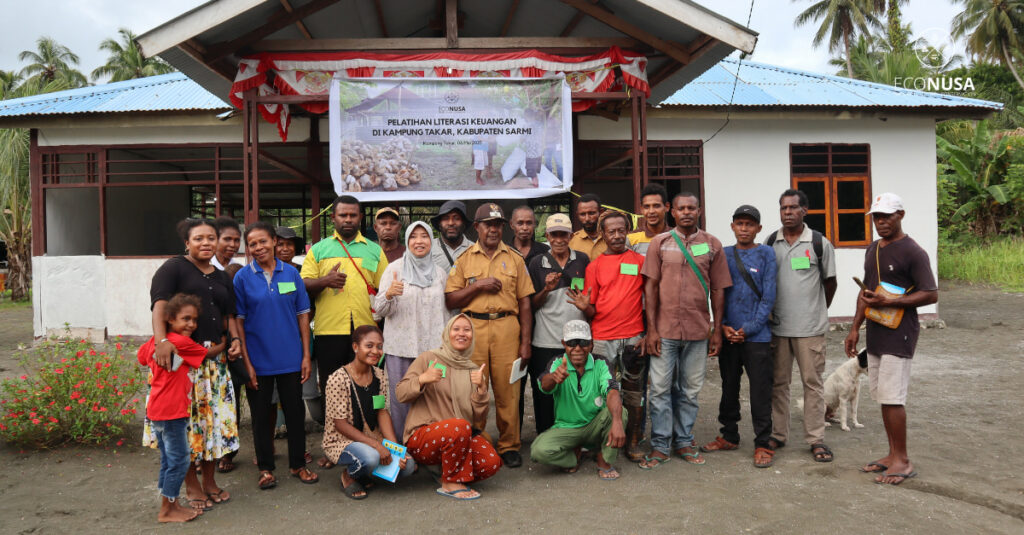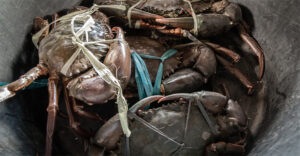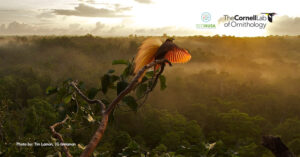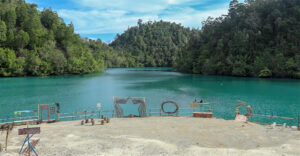
Kampung Takar, located in Sarmi Regency, Papua, is known as one of the key copra-producing regions in the area, with abundant natural and human resources. The community’s main commodity is coconut, which has been processed into copra since the late 1970s. This product has become a primary source of livelihood, passed down from generation to generation.
The Potential of Copra Farming in Kampung Takar
In the late 1970s, locals sold copra for just IDR 600 per kilogram. Today, copra farming continues to be a family tradition. According to farmers, income from copra sales is sufficient to support their families and even pay for their children’s education.
However, the main challenge lies in limited transportation and market access. To help overcome this, EcoNusa Foundation has been supporting the community since 2024 in marketing their copra products. This support aims to expand market access and sustainably increase the selling value of copra.
Read also: Nabire Coconuts: A High-Value Commodity from the Coastal Areas of Papua
Financial Literacy Challenges Among Copra Farmers
Despite the strength of tradition and experience, many copra farmers still struggle with business financial management. Most are not accustomed to recording income and expenses, making it difficult to calculate net profits or plan for the long term.
This lack of financial literacy poses a significant barrier to the village’s journey toward economic independence.
Financial Literacy Training by EcoNusa
As part of efforts to build farmers’ capacity, a financial literacy training session was held in Kampung Takar on May 6, 2025, organized by EcoNusa Foundation. The event was attended by 20 participants, including community members and representatives of local organizations.
Read also: Kaimana Copra Distributed to National Markets
The training covered:
- Basic concepts of personal and business financial planning
- How to consistently record income and expenses
- Debt management strategies and financial protection
- Practical steps to create a simple financial plan for copra businesses
Insights and Reflections from the Training
Discussions during the training highlighted several key aspects of copra farming in Kampung Takar:
- Coconut groves are collectively owned by extended families and inherited according to traditional customs.
- Harvests are done in rotation, and profits are evenly shared based on customary agreements.
- Some farmers must purchase additional coconuts from outside the village to meet production needs, requiring extra capital and transport costs.
- Lack of proper bookkeeping remains a major weakness in managing the business.
One of the participants, Simon Sawefkoy, shared:
“We joined this training to better understand our copra business. The income is enough to meet our needs, but our challenge is in managing money—especially when it comes to expenses.”
Toward Economic Independence for Copra Farmers in Papua
EcoNusa’s Director of Finance and Operations, Etik Meiwati, emphasized the importance of collaboration in this initiative. She stated:
“We’re excited to see everyone’s participation in this training. Our hope is that activities like this can become the foundation for building a more economically independent Papuan community.”
Through this training, it is hoped that copra farmers in Kampung Takar will strengthen their financial skills, run their businesses more efficiently, and create a brighter, more prosperous, and sustainable future.







